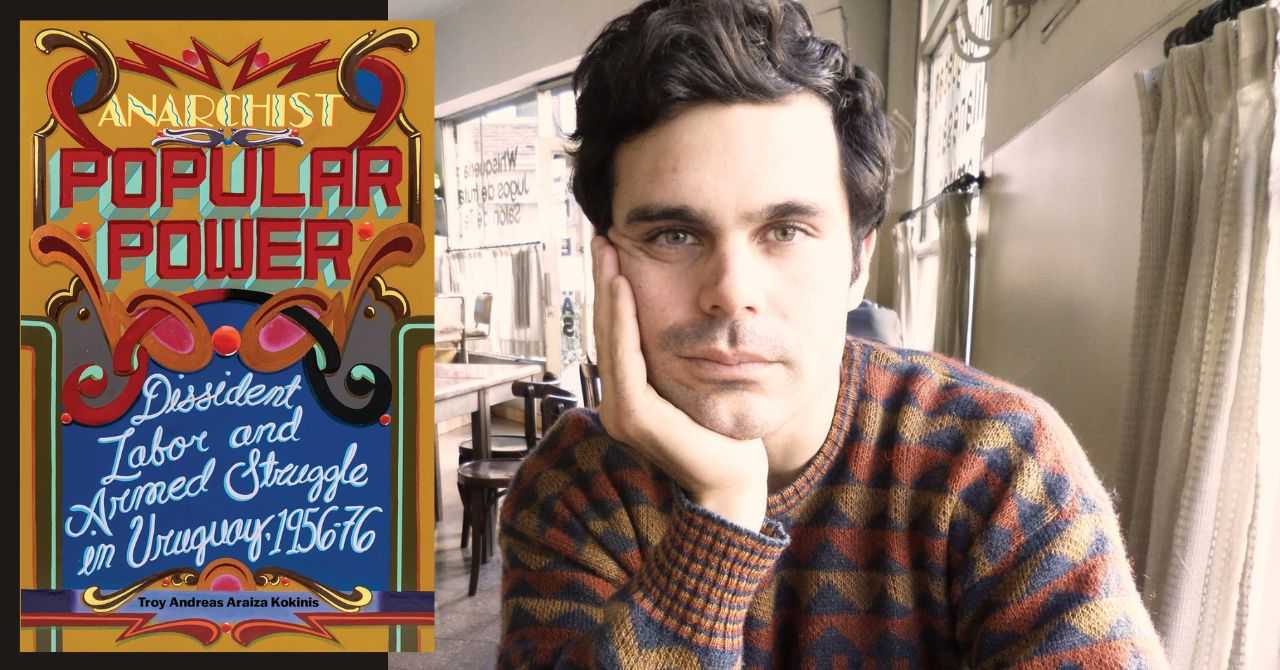- Cafe
- Bookstore
- Upcoming events
- Book an event
- Catering
- Institutional and bulk sales
- About Red Emma's
- Press
- Buy gift cards
- Red Emma's merch
- Donate to the Red Emma's Education Fund

Troy Andreas Araiza Kokinis presents "Anarchist Popular Power: Dissident Labor and Armed Struggle in Uruguay, 1956-76"
This event has already happened.
Araiza Kokinis's study of the Uruguayan Anarchist Federation (FAU) broadens our understanding of the Cold War-era political landscape beyond the capitalism-communism and Old Left-New Left binaries that dominate the historiography of the epoch.
Arguably the most impactful anarchist organization globally in the Cold War era, the FAU viewed everyday people as revolutionary protagonists and sought to develop a popular counter-subjectivity through accumulating experiences directly challenging the market and the state.
The FAU argued that everyday people transformed into revolutionary subjects through the regular practice of collective direct action in labor unions, student organizations, and neighborhood councils. Their slogan was "create popular power," and their praxis differed from nationalist strains of Marxism at the time. The strategies and tactics promoted by FAU, ones in which everyday people took on roles as historical protagonists, offered the largest threat to maintaining social order in Uruguay and thus spawned a military takeover of the state to dismantle and deflate their vibrant popular revolt.
With less than eighty militants, FAU played a key role both sparking and networking popular protagonism in workplaces, neighborhoods, and on campuses. The FAU worked in coalition with the Communist Party (PCU), MLN-Tupamaros (MLN-T), and other Left organizations to support a unified Left project while simultaneously challenging hegemonic strategies, tactics, and discourses. Unlike other anarchist groups worldwide, which took to individualism and counterculture in response to Marxism’s popularity throughout the sixties, the FAU embraced Third Worldism and a class struggle strategy that made them a relevant force amongst popular social movements.
Throughout the constitutional dictatorship (1967–73), the Tendencia Combativa, a coalition of dissident labor unions spearheaded by FAU, controlled one-third of the nation’s unions in some of the most lucrative industries, especially in the private sector. By the time of June 27, 1973, military coup, a majority of Uruguayan industrialists recognized organized labor as the most serious threat to national security. Moreover, communications between US Ambassador to Uruguay Ernest V. Siracusa and US Secretary of State Henry Kissinger, showed the dictatorship’s primary concern was to repress the surging labor movement rather than confronting a waning Tupamaro guerrilla movement. The FAU’s anarchist activism within this broader climate of worker revolt threw a wrench in the 1970s neoliberal experiments in Latin America that later migrated north to impoverish American workers from the 1980s until today.
Troy Andreas Araiza Kokinis grew up in LA's Pomona Valley. His family's participation in the Chicano movement grew his interest in Cold War-era Latin American social movements. Araiza Kokinis is a lecturer at the University of California, San Diego and also a sign painter, rock climber, and Dodger baseball fanatic.

